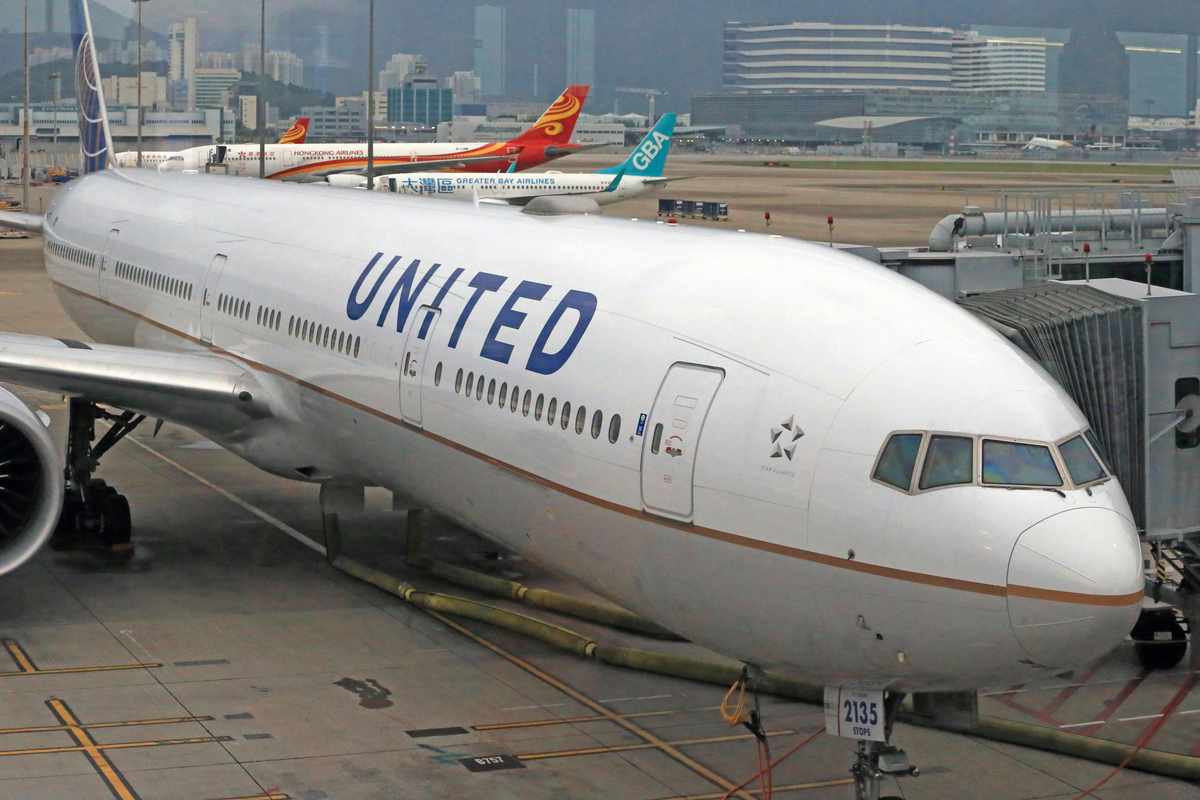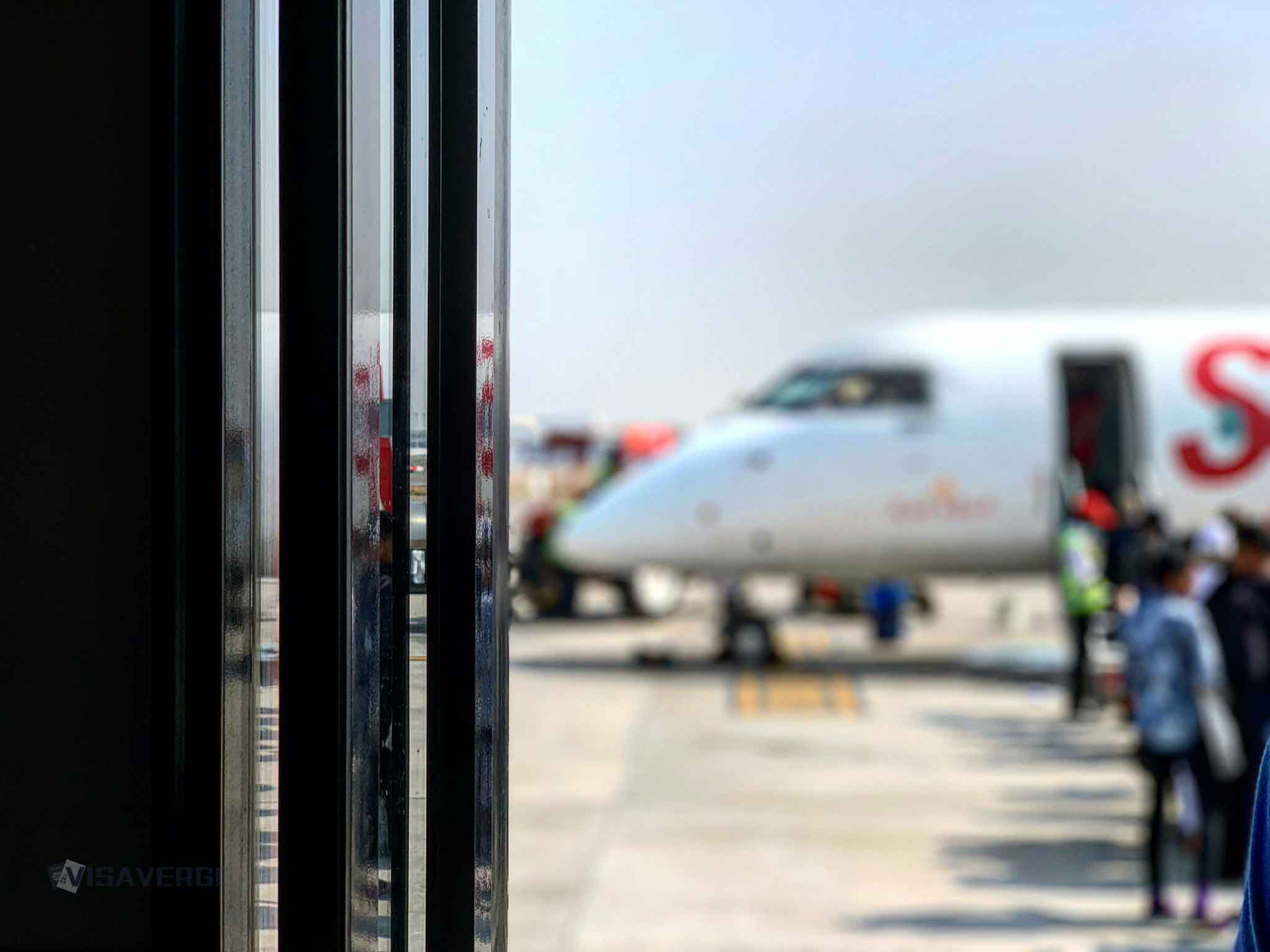(NEWARK, NEW JERSEY) United Airlines will sharply cut international flights from its Newark hub to several major European cities, with services to Edinburgh, Brussels, and Frankfurt reduced to just one daily flight by March 2026, reshaping options for transatlantic travelers who rely on the route for tourism, business trips, and family visits.
The airline’s latest schedule changes mean that passengers planning summer 2026 trips from Newark to Scotland, Belgium, or Germany may find fewer choices in departure times, tighter connections, and more crowded flights during peak season. While these cities will keep a daily link, the cuts mark a step back from the multiple daily frequencies that have made Newark a key gateway to Europe for many East Coast travelers, including recent immigrants and dual nationals who split their lives between the United States and Europe.

Why United says it’s changing the schedule
United has framed the broader adjustment to its European network as part of a normal reshaping of its schedule ahead of the summer 2026 season. The decision comes amid a mix of regulatory and operational pressures, including Federal Aviation Administration (FAA) schedule limits around the busy New York airspace, and changing demand patterns on specific routes.
The carrier has been clear that the FAA did not directly order these specific cuts. In prior statements about government-related changes, United said its “long-haul international flying and our hub-to-hub flying will not be impacted by this schedule reduction direction from the FAA,” signaling that the reduced Newark–Edinburgh, Newark–Brussels, and Newark–Frankfurt frequencies are part of its own network strategy rather than a simple regulatory response.
How this affects travelers — visa and timing implications
According to analysis by VisaVerge.com, route changes like these can have a quiet but real effect on people dealing with visas and long-term stays. Fewer daily departures often mean less flexibility for travelers who must:
- appear at consular appointments,
- meet strict entry deadlines tied to work or study start dates, or
- depart Europe before the expiry of short-stay Schengen permissions.
When a visa or residence permit has a fixed end date, losing an evening or mid-day flight can turn into a scramble to rebook or reroute through another hub.
Fewer flights = less scheduling flexibility. This can be critical when entry/exit dates are tied to legal or institutional deadlines.
For country-specific visa and travel rules, the U.S. Department of State’s Europe travel page can help travelers plan around visa validity, entry rules, and length-of-stay limits:
– https://travel.state.gov/content/travel/en/international-travel/International-Travel-Country-Information-Pages/Europe.html
New routes United is adding (summer 2026)
At the same time as it scales back on some major cities, United is adding new nonstop routes from Newark to smaller or secondary European destinations for the same 2026 summer period. Planned launches include:
- Split, Croatia (start: April–May 2026)
- Bari, Italy (start: April–May 2026)
- Glasgow, Scotland (start: April–May 2026)
- Santiago de Compostela, Spain (start: April–May 2026)
These routes may appeal to travelers seeking direct access to coastal or regional cities that once required connections through larger hubs.
Industry trade-offs and who benefits or loses
Industry analysts describe this as a common “trade-off”:
– Airlines may reduce one or two daily flights to a traditional capital (e.g., Brussels) and redeploy aircraft/crew to emerging leisure markets.
– The shift often targets markets where demand grows faster and competition is lighter.
Impacts:
– Benefits: New direct flights can lower costs and travel times to smaller cities where many migrants actually live.
– Downsides: Loss of multiple daily departures on routes like Newark–Brussels or Newark–Edinburgh reduces flexibility for complex itineraries involving internal Schengen flights, consular visits, or tight work schedules.
United’s customer policies and communications
United has not released a detailed public explanation solely focused on the Newark cuts to Edinburgh, Brussels, and Frankfurt. In broader comments about schedule changes, a spokesperson emphasized customer care:
“We are giving full refunds to those passengers that are impacted,” the spokesperson said, adding that the carrier will give at least three days’ notice before any cancellation.
- This policy applies when flights are removed from the schedule outright.
- For frequency reductions (rather than full route closures), travelers are more likely to face time changes and rebookings than outright cancellations.
- Schedules can still shift months before departure.
Practical advice for affected passengers
For transatlantic passengers, the practical advice is simple but urgent. If you hold a booking from Newark to Edinburgh, Brussels, or Frankfurt for travel after March 2026:
- Check your reservation often and monitor airline emails for time-change notices.
- Keep your contact details up to date with the airline so alerts reach you quickly.
- Retain copies (printed or digital) of:
- visa approvals,
- school or employer letters, and
- other documents proving travel reasons or deadlines.
- Act early when a schedule change appears — the first passengers to accept rebookings usually get the most convenient alternatives.
Consumer advocates also recommend these practical steps:
– Book with updated contact details so schedule-change alerts reach you quickly.
– Keep copies—printed or digital—of visa approvals, school letters, or work contracts to explain arrival-date changes if needed.
– When changes occur, contact the airline as soon as possible; early responders often get better rebooking options.
Specific consequences for key user groups
- Edinburgh route users: For many, the Newark–Edinburgh link is more than a holiday connection; it is a lifeline for dual U.S.–UK families, students, and workers. A single daily flight makes last-minute travel harder and can force routing through other hubs (London, Dublin), adding time and complexity.
- Brussels route users: The Newark–Brussels service matters to people working with European Union institutions, U.S. government missions, or multinational firms. Fewer same-day recovery options increase the chance of rebookings through other hubs and longer overall journeys.
- Frankfurt route users: Frankfurt is a major European hub with important migration and refugee services. Reduced United frequencies narrow options for people who prefer to keep travel on a single carrier and ticket, especially when carrying sensitive immigration documents.
Timing and long-term impacts
The March 2026 timing matters because these changes will affect the early wave of summer bookings. People who secure tickets a year in advance for weddings, graduations, or the start of study programs may see schedule shifts long after they’ve arranged visas, housing, or enrollment.
- Risk: mismatches between travel dates and permit validity, possibly forcing travelers to pay change fees on internal European bookings even when United waives its own penalties.
Human stories behind the numbers
Behind route statistics are very personal cases:
– A permanent resident returning from Frankfurt to keep a green card valid.
– A U.S. citizen flying to Brussels to finalize a family reunification visa.
– A student visiting Edinburgh before a post-study work permit ends.
For these travelers, a reduction from two or three daily flights to one is not merely a network change; it changes the rhythm of movement between continents and adds uncertainty to journeys already constrained by paperwork, deadlines, and strict rules.
Quick reference table: Before vs. After (Newark — Mar 2026)
| Route | Current typical frequency | Frequency by March 2026 |
|---|---|---|
| Newark — Edinburgh | Multiple daily (varies) | One daily flight |
| Newark — Brussels | Multiple daily (varies) | One daily flight |
| Newark — Frankfurt | Multiple daily (varies) | One daily flight |
Final takeaway
- If you have travel tied to visas, studies, work start dates, or family deadlines, check bookings frequently, keep documentation handy, and act early on rebooking offers.
- The network shift includes both reductions on traditional capital routes and additions to regional destinations — a trade-off that will help some travelers while complicating itineraries for others.
This Article in a Nutshell
United will reduce Newark services to Edinburgh, Brussels and Frankfurt to one daily flight by March 2026, citing network reshaping amid FAA constraints and shifting demand. The cuts limit departure options and tighten connections, affecting travelers with visas, work or school deadlines. United will add nonstops to Split, Bari, Glasgow and Santiago de Compostela in spring 2026. Passengers should monitor reservations, keep travel documents accessible, and respond quickly to rebooking notices to avoid disrupted itineraries.








